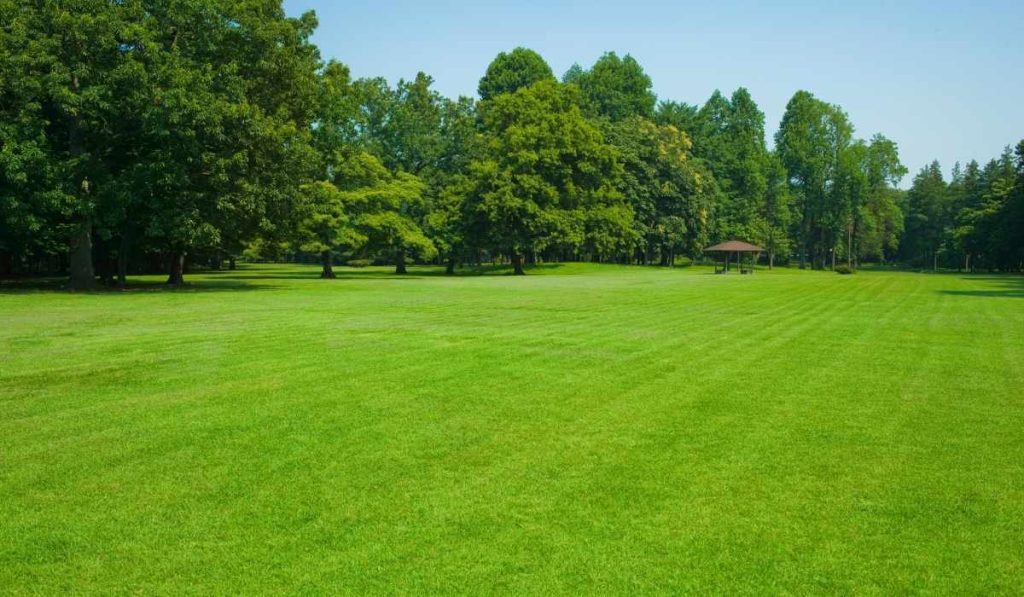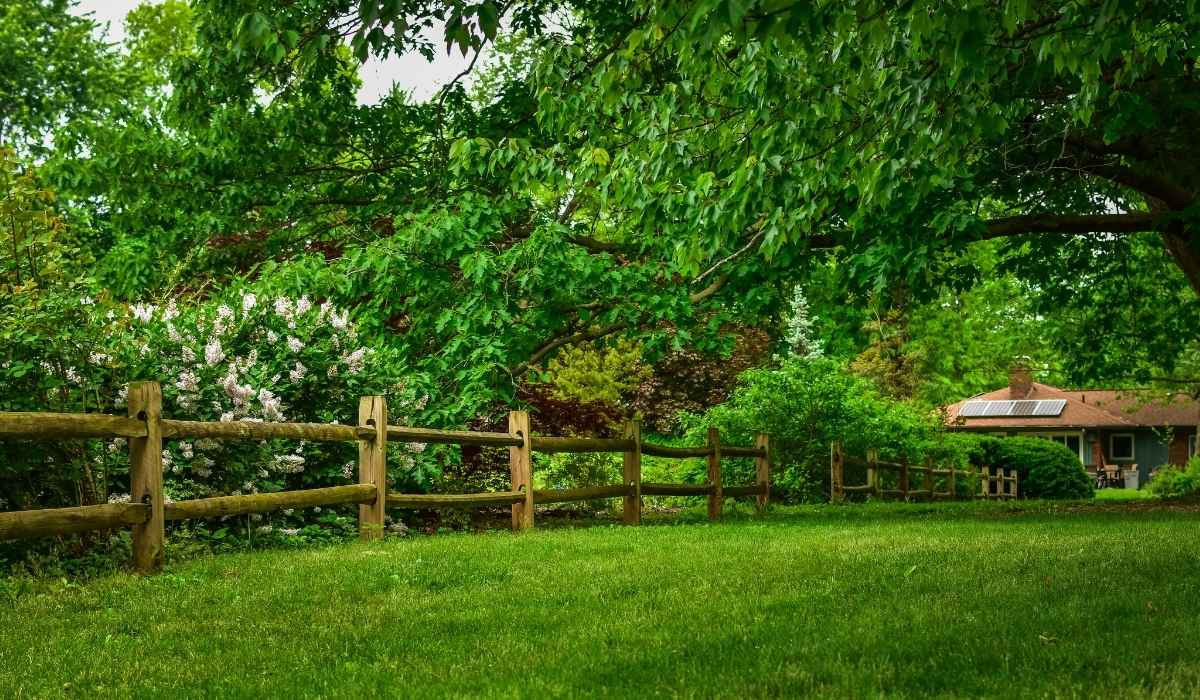
Choosing the right grass for your lawn is more than just a matter of taste—it’s a decision that impacts your yard’s appearance, durability, and maintenance needs for years to come. Bermuda grass, known for its rich green hue and robust growth, is a favorite choice for homeowners in warmer climates.
If you’re considering this grass for your lawn or looking to upgrade your existing turf, this comprehensive guide will walk you through its benefits, care requirements, and associated costs.
We’ll also touch on shade-tolerant varieties, including the rising popularity of TifTuf Bermuda grass.
What Is Bermuda Grass?
Bermuda grass (Cynodon dactylon) is a warm-season grass widely used for residential lawns, golf courses, athletic fields, and commercial landscapes in the southern United States.
Despite its name, this grass is not native to Bermuda; it actually originates from Africa.
Over time, it has adapted well to hot, sunny climates and thrives in well-draining soils.
This grass variety is both tough and fast-growing.
It spreads through rhizomes (underground stems) and stolons (above-ground stems), which allows it to cover bare patches quickly.
Because of this, it requires regular mowing but rewards you with a lush, resilient lawn.
Key Benefits of Bermuda Grass

Exceptional Drought Tolerance
One of the standout traits of this grass is its ability to endure dry, hot weather.
Even if the blades go dormant or brown during prolonged droughts, the roots stay alive and regrow once adequate moisture returns.
This makes Bermuda grass an excellent choice for areas with water restrictions or irregular rainfall.
Durability and Foot Traffic Resistance
This grass is commonly used in high-traffic areas for a reason—it bounces back quickly from wear and compaction.
It’s ideal for families with kids or pets, and it’s tough enough to handle repeated mowing, walking, or even sports activities.
Pest and Disease Resistance
When healthy and properly maintained, this grass is naturally resistant to many common lawn pests and diseases.
It can tolerate mild infestations from insects like armyworms, cutworms, and mites without significant damage.
This resilience lowers the need for frequent chemical treatments.
Fast Establishment and Growth
Whether you’re planting from seed, sod, or plugs, this grass establishes rapidly.
This makes it a favorite for new lawn installations or areas that need quick recovery from damage.
Considerations: Is Bermuda Grass Right for Your Lawn?
Before installing Bermuda grass, evaluate your lawn’s conditions:
Sunlight: Bermuda grass thrives in full sun. It requires at least 6–8 hours of direct sunlight per day. If you have a shaded lawn, you may need to look into the best Bermuda grass for shaded areas. One of the top contenders in this category is TifTuf grass, which is bred for better shade tolerance.
Maintenance: While durable, Bermuda grass demands regular mowing (1–2 times per week during peak growing season), watering, and occasional fertilization. If you can commit to the upkeep or hire help, it’s a great option.
Climate: As a warm-season grass, this does best in USDA zones 7–10. It will go dormant and turn brown in cooler temperatures, but regrowth is swift when warm weather returns.
Best Bermuda Grass for Shaded Areas
Traditional grass struggles in shady environments.
However, advancements in turf science have led to the development of varieties like TifTuf grass, which is currently regarded as the best Bermuda grass for shaded areas.
TifTuf maintains its color and density even with reduced sunlight, outperforming other Bermuda varieties in side-by-side trials.
If you have a partially shaded lawn but love the qualities of Bermuda grass, TifTuf is worth considering. You can search for TifTuf Bermuda grass near me to find local suppliers or sod farms that carry this superior variety.
TifTuf Bermuda Grass Reviews
Homeowners and turf professionals alike have praised this grass for several reasons:
- Excellent drought resistance
- Improved shade tolerance compared to traditional Bermuda
- Beautiful fine-textured appearance
- Lower water usage
- Quick recovery from stress
According to TifTuf Bermuda reviews, it’s particularly beneficial for urban lawns that receive intermittent shade from buildings or trees.
Many lawn care experts report less thinning in shaded zones and lower irrigation requirements than with older varieties like Tifway 419.
Bermuda Grass Maintenance Tips
To keep Bermuda grass healthy and vibrant year-round, follow these expert bermuda grass maintenance tips tailored to each season.
Spring
- Scalp the lawn: Lower your mower setting to remove thatch and encourage new growth.
- Apply pre-emergent herbicides to prevent crabgrass.
- Begin fertilization after green-up using a nitrogen-rich formula.
Summer
- Mow frequently: Maintain a height of 1–2 inches.
- Water deeply and infrequently: Provide 1–1.25 inches of water per week.
- Control weeds and pests: Apply post-emergent herbicides as needed.
Fall
- Test the soil: Adjust pH and nutrients as needed for winter preparation.
- Stop fertilizing: Avoid late-season growth that is susceptible to frost.
- Reduce irrigation: Water only during extended dry spells.
- Apply pre-emergent weed control in early fall.
Winter
- Minimize traffic: Dormant Bermuda is more vulnerable to damage.
- Avoid unnecessary watering or mowing.
- Overseed with ryegrass if winter color is desired.
Managing Shade and Thatch
This grass needs sun to thrive, but varieties like TifTuf make it possible to enjoy this turf in areas with filtered light.
Still, no this can thrive in deep shade, so pruning trees or using shade-tolerant landscaping alternatives may be necessary in extreme cases.
Thatch buildup is another concern. It’s a layer of dead roots and stems that accumulates above the soil.
If the thatch exceeds ½ inch, it can block air, nutrients, and water. Dethatch your lawn annually if needed.
Costs of Installing Bermuda Grass
This grass is one of the more budget-friendly turf options available, though prices vary based on type and format (seed, sod, or plugs).
Sod Pricing
- Average cost: $0.30–$0.85 per square foot
- Per pallet: $150–$380 (covers ~450 square feet)
- Rolls: $3–$9 each, depending on local suppliers
Seed Costs
- Around $4–$10 per pound
- Requires 1–1.5 lbs per 1,000 sq ft for new lawns
- Seeds are best for patient homeowners, as sod offers quicker results
Installation
- DIY: You’ll save on labor but must prepare the soil, install evenly, and water correctly
- Professional installation: Expect to pay $0.50–$1.00 more per square foot for labor
Prices are comparable to Zoysia and St. Augustine grasses, though Bahia is typically cheaper, and Ryegrass more expensive.
Conclusion
Bermuda grass is a solid choice for homeowners seeking a vibrant, tough, and sun-loving lawn.
With its quick growth, drought resistance, and minimal pest problems, it delivers long-lasting curb appeal with proper care.
For those in partially shaded environments, TifTuf Bermuda offers a game-changing solution with great reviews and proven performance.
If you’re ready to transform your yard, explore your local turf farms or landscaping companies by searching for TifTuf Bermuda grass near me to find the best source.
Whether you’re installing a brand-new lawn or reviving your old one, this grass could be the lush, green upgrade you’ve been waiting for.
The Turfgrass Group stands out as a premier provider of proprietary turfgrass cultivars, leading the way in turfgrass innovation and research.
Through strategic partnerships with top university breeding programs and industry experts, TTG licenses a select portfolio of high-performance, value-added turfgrass varieties.
Each certified cultivar is backed by a verified genetic pedigree and a proven history of dependable performance in real-world conditions.
FAQs
What are the main benefits of growing Bermuda grass in my lawn?
Bermuda grass is known for its durability, drought tolerance, and fast growth. It’s ideal for sunny lawns, sports fields, and high-traffic areas due to its ability to recover quickly from wear and tear. It also has moderate resistance to pests when properly maintained.
Is Bermuda grass a good option for shaded areas?
Traditional grass prefers full sunlight and doesn’t thrive in heavy shade. However, varieties like TifTuf are considered the best Bermuda grass for shaded areas because they have better shade tolerance than other cultivars.
What is TifTuf Bermuda grass, and why is it popular?
TifTuf grass is a drought-resistant variety that maintains color and density even under reduced irrigation. It also performs better in partially shaded areas compared to other Bermuda varieties. Its excellent wear tolerance and adaptability make it a popular choice for both homeowners and landscapers.
Where can I find TifTuf Bermuda grass near me?
You can find TifTuf Bermuda grass near me by searching local sod farms, garden centers, or landscaping supply companies. Many suppliers also offer delivery and installation options, especially if you’re buying in bulk for large lawn areas.
Are there any reliable TifTuf Bermuda grass reviews available?
Yes, this grass reviews are generally positive. Homeowners and professionals praise its drought tolerance, low water requirements, and ability to thrive with less maintenance. It’s also recognized for staying green longer into the season compared to traditional Bermuda grass.
How do I care for Bermuda grass throughout the year?
Bermuda grass requires regular mowing (about once a week during the growing season), adequate watering, and fertilization. In fall, stop fertilizing 6–8 weeks before the first frost, reduce watering, and manage weeds and fallen leaves to prepare it for dormancy.
How much does Bermuda grass cost?
Bermuda sod costs around $0.30 to $0.85 per square foot, or $150 to $380 per pallet, depending on the supplier and your location. Rolls typically cost between $3 and $9.20 each. The price also varies depending on whether you’re buying seed, sod, or plugs.
Is this grass pest resistant?
Yes, this grass (Cynodon dactylon) is relatively pest-resistant when grown in ideal conditions. It can tolerate low populations of pests like armyworms, mealybugs, and mites. However, during stress or infestation, pest control may be necessary.